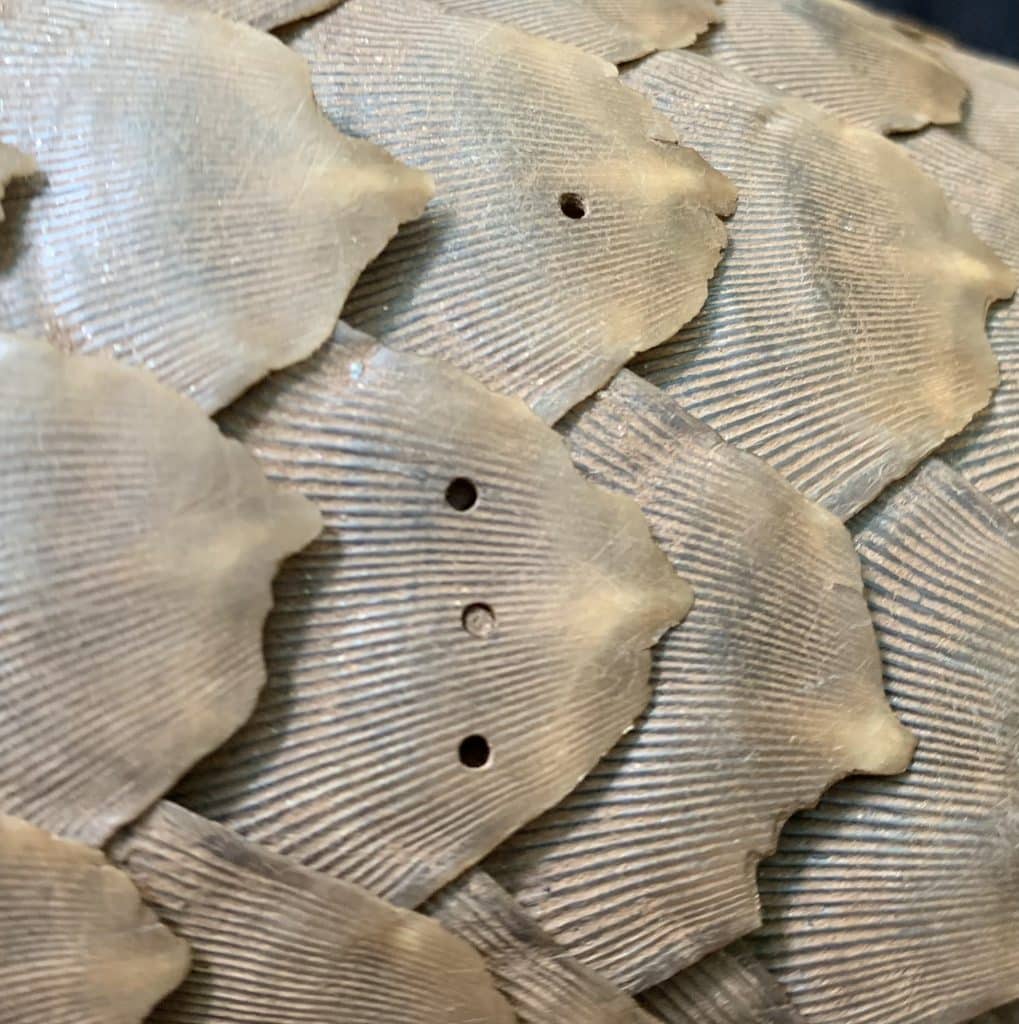A small white-bellied pangolin (Phataginus tricuspis) ambles through the African rainforest, using her long tongue to feast on ants and termites as she goes. Suddenly, a dry branch cracks nearby. The gentle mammal quickly curls into a tight, protective ball as human hands reach down for her. While this defensive curl keeps pangolins safe from many predators, it makes them easy targets for poachers, factoring into why they’re the most illegally trafficked mammals in the world. Fortunately, this particular pangolin has just been scooped up by a local conservationist participating in early trials of the proposed Pangolin Universal Notching System (PUNS) — an innovative coding system that adds a new layer of protection to pangolins’ scaly armor.
Although millions of pangolins are trafficked each year, no standardized system currently exists for monitoring or identifying trafficked pangolins. PUNS (developed by the Pangolin Monitoring Team, who partnered with Lisa Hywood and Ellen Connolly of the Tikki Hywood Foundation) will improve pangolin traceability, allowing conservationists to recover information from pangolins seized from illegal trading and hopefully, disrupt trafficking networks.
Combining notching and marking techniques commonly used on hoofed mammals and turtles, the system involves painlessly drilling small holes and etching permanent, unique identification numbers onto some of the pangolin’s keratin-based scales. This empowers a network of animal advocates to identify, monitor, rescue, research, and potentially return this little pangolin to her forest home, if poachers are ever caught trying to smuggle or sell her. If globally adopted, PUNS could make a crucial difference in the fight to save all eight species of pangolins, which range in Asia and Africa, where rapid habitat deterioration and loss are further adding to their plight.
Some pangolin conservation programs have made progress by establishing and managing their own scale-marking systems. Unfortunately, inconsistencies between different systems can make it hard to quickly and easily share data worldwide, which isproblematic as time and accuracy are often critical to pangolin conservation efforts. Capable of assigning unique numbers to up to 15,554 individual pangolins, PUNS is easy to use, requires minimal resources, integrates well with other tagging techniques for pangolin research, and can help increase knowledge about pangolin migration, reproduction, aging, survival, and local trafficking patterns.
As pangolins face urgent threats from the illegal wildlife trade, Wildlife Conservation Network is proud to have established the Pangolin Crisis Fund (PCF), the world’s largest funding mechanism dedicated specifically to protecting all eight pangolin species. By supporting organizations like the Tikki Hywood Foundation, the PCF aids efforts that combat pangolin poaching, end the trade and demand for pangolin products, disrupt trafficking networks, improve identification and tracking methods, and raise the profile of this little-known and highly trafficked mammal while there is still time to save them.


